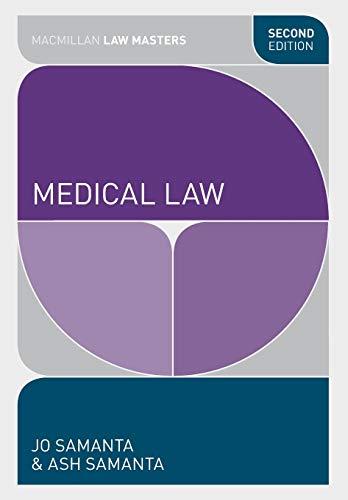Question
New state ice co v. Liebamnn 1. Brandeis's overall conclusion is that the State of Oklahoma was justified in not allowing Liebmann to manufacture ice
New state ice co v. Liebamnn
1. Brandeis's overall conclusion is that the State of Oklahoma was justified in not allowing Liebmann to manufacture ice for sale. To support this conclusion, he argues three points: (i) That prohibiting competition in this case was to the public's welfare;
(ii) That there are precedents for states' creating monopolies as public utilities;
(iii) That the State's action does not violate the Fourteenth Amendment.
Here is a reconstruction of his argument in support of (i):
The State's function is to promote the public welfare.
I t is t o t h e p u b l i c ' s w e l f a r e n o t t o h a v e w a s t e , e x p e n s i v e p r o d u c t s , or poor service.
So the State should not to allow waste, expensive products, or poor service.
Sometimes competition leads to waste, expensive products, or poor service.
So sometimes the State should not to allow competition. Competition in the ice business in Oklahoma led to waste and poor service.
Therefore, it was legitimate for the State of Oklahoma not to allow competition in the ice business.
For each of the premises in this argument, determine whether Brandeis assumes its truth or provides an argument for it. And for those premises he argues for, diagram the arguments.
Step by Step Solution
There are 3 Steps involved in it
Step: 1

Get Instant Access to Expert-Tailored Solutions
See step-by-step solutions with expert insights and AI powered tools for academic success
Step: 2

Step: 3

Ace Your Homework with AI
Get the answers you need in no time with our AI-driven, step-by-step assistance
Get Started


